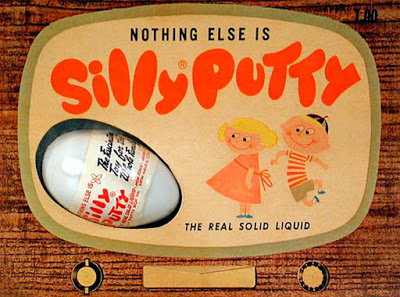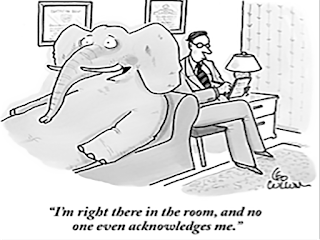6 PM—Secretary Howard School welcomes us.
We have four speakers—all ATRs.
Aixa Rodriguez—ESL teacher and ATR, rated HE—No vacancies for ESL in Bronx HS—CR Part 154 makes courses double counted so there are no vacancies. Asks that stereotyping FSF, be challenged by UFT. Leads to rampant ageism.
August Leppelmeier—NYT maligned character of ATRs. Very unfair. Most ATRs excessed for downsizing. Somehow city isn’t placing ESL teachers. Those charged have been cleared. If not, they’d be fired. UFT needs to stand by concept that people are exonerated. Expects union to fight in press with ads, speak publicly, use social media. Has been going on since June. We expect more.
Gina Trent—English teacher for 17 years, mostly as ATR. Grateful UFT preserved salary and benefits. However, you should fight for more quality of life issues. Most of my colleagues envy ATR position. Disturbing. Many young people leave with health issues and stress. We need to try to get principals accountable where all teachers have no trust. We need to place pressure. We need to defend ATRs and senior teachers. Research suggests we are the most effective.
Karen Sklaire—ATR—15 year teacher of theater—excessed. HE until excess. No theater positions available. Say UFT said there was no union representation for ATRs. Second excess in 15 years. First time alone in a room for three years. Left and came back when recruited. Won RFK award in teaching, excessed two years later. Had opportunity to sub for six months—rejected by DOE. Have been assistant in 1st grade, making copies. Told by DOE can’t be placed. Told by union lucky to have job. Am pro union, has been nothing but a heartbreak. I just want to say it’s heartbreaking and I’m ready to leave. Condescending to say I’m lucky to have a job. I don’t feel lucky. ATR system is failing. Better to not have a job than stay and feel humiliated. Schools won’t see me because I’m ATR with 15 years. Only people fighting for me are DOE theater program people.
Minutes—approved
President’s report—Mulgrew not here 6:13
LeRoy Barr—speaks of ELL conference—over 1200 members. Did leafleting at culinary ICE institute. Sunday, Making Strides walk. Good participation.
Friday—Pride committee’s first meeting. DA Wednesday. Wear pink. Sat Oct 21 Manhattan and SI parent conf. EB October 30th.
Questions
Kuljit S. Ahluwalia (KJ)—
New Action—Many people at mike mentioned constant maligning. How do we counter it?
Schoor—DOE wanted ATRs off payroll. We decided not to give up ATRs. Have supported them. Came up with buyout, accepted by 120 plus. Some will be assigned beginning this week, at least 200 for rest of year. We support them, will not give them up.
KJ—I didn’t hear an answer. What about the maligning?
Schoor—problem w press. Agenda to malign. Times article was terrible. Agenda of ed. board. We think shouting match in press will not resolve it. People in public do not support ATRs. That’s the conundrum. We support ATRs.
KJ—Seems to be a problem code for ATRs, even when exonerated.
Mike Sill—Director of Personnel—Difference between problem code, which no one working has. There is a flag. Difference may be immaterial. Flag says if principal wants to hire someone, may have 3020a, may have been discontinued. Will ask principal do you still want to hire this person. If principal says yes, the person can be hired. We tell people to be upfront about these things. If it doesn’t come up in interview, principal finds out later and may stop hiring.
KJ—How close to retirement were 120 plus people?
Sill—Almost everyone who took it retired. Don’t have exact number. Those retiring anyway were happy.
KJ—Not much of buyout if they were retiring anyway. Principals hiring ATRs with limited years, or those who are qualified?
Schoor—Court cases say anyone disciplined at all may be an ATR. People not innocent just because they weren’t fired. Language needs to be clarified.
Mike Schirtzer—
MORE—Emily James and Susan spoke on family leave. Update? UFT and NYSUT joint lawsuit against lowering of standards. Update?
Arthur Goldstein—
MORE—Title One is vital to my school and many others. Without it, not only students will suffer, but we will likely see draconian cuts in staff. I know that no one here wants that. This is personal for me, because I teach ESL. Because of the insane regulation known as CR Part 154, it’s likely my brother and sister ESL teachers will be cut, and hapless students will sit in social studies classes, be expected to magically acquire English in them, and all we’ll be left to do is hope for the best.
I applaud the mayor’s initiative to offer free lunch in school, but it’s created another problem. Why should parents bother to fill in lunch forms when their kids will get free lunch anyway? Francis Lewis High School makes Title One, or sometimes not, by the skin of our teeth. If ten or twenty parents choose not to fill in the forms, all of our students and a good part of our staff will suffer. We cannot be the only school in that position.
I’m sure no one here wants that, and I’m sure the mayor doesn’t want that either. There are a few ways we could avoid that. One would be to require the lunch form as a precondition for participation in the free lunch program. I understand that may hurt kids if done too strictly, so we’d have to tread carefully.
Another would be to simply distribute the funds to all city schools rather than make us jump through hoops. The rules are bizarre. It’s very hard for me to understand why a Staten Island school needs 45% of students to qualify for Title One while Queens schools need 60. All due respect to Staten Islanders, that’s inequitable.
I’m certainly open to other suggestions.
I ask that we meet and work together to resolve this issue in a way that benefits both our students and our members.
Schoor—Thank you. Will get back to you.
Ashraya Gupta—
MORE—Immigrant liaison discussions?
Schoor—They haven’t gotten back to us. No hard answer
Gupta—In Nov. 2015, ask Teacher Retirement Board to divest from fossil fuels. What happened with that”
Dave Kazansky—What happened with that was after it was passed we went to TRS, crafted resolution. Consultant firms bid. We settled on company called Mercer. When process finished, work began, looked at portfolio, determined what we can do. They have presented twice with stages of analysis. Long process, dealing with billions, don’t want to move before we have research and science behind it. We will get a final report and make a decision. We are serious, and we were months ahead of other retirement systems. We will give info when we have it.
Schoor—please share final decision.
Jonathan Halabi—
New Action—People got stubs, were very happy. I have gotten questions about dues. I paid them in 2011. Why are there more dues. What is answer for members?
Schoor—This board passed resolutions. Treated these payments as others such as TDA. Set dues to .85%. If they multiply gross by this, they’ll see it. Average $23 per person.
Halabi—Small schools when they started had money to buy equipment. We don’t have much space. Process for discarding functional obsolete equipment requires bids and takes forever. Was problem in past with throwing things out. Can anyone talk to chancellor about ridiculous regulations?
Schoor—We will ask DOE.
Marcus McArthur—
MORE—Works at transfer school. Had student come, was getting evicted from home. Has been press about homeless students. At all time high. We deal with this issue a lot. DOE is aware and is offering resources. Has UFT been in dialogue with DOE? Are there resources for us?
Schoor—Not sure if anyone has answer.
President's Report
Michael Mulgrew—
Title One--We would not support free lunch program until they said it was not based on lunch forms. Not based on lunch forms now. State has agreed NYC doesn’t have to do Title One through lunch forms.
Homelessness—Amazing that answer is always it’s up to school. Ridiculous answer. We have offered to work with DOE. Schools need after school HW programs. We work with non profits, but not DOE. DOE says they’ll check and get back to us. Doesn’t matter who admin is. DOE still has this mentality that it’s up to principal. It’s our system. If we have 100K homeless, we need plan. I will continue to advocate and push these issues
Saw school where principal didn’t know, and had no capability to help with these stresses. How can they achieve? I will push them. Constantly discussed.
SUNY Charter—We said we’d sue. Main issue—legally sets precedent, but NYSED should issue certificates. We are outraged at stupidity. Bad precedent that private entities do state licensing. It says they believe anyone can teach. They’re saying you don’t need to go to school, understand classroom management or anything. That is what they believe about education. They believe in scripted learning. We know they use it in Africa, and they want to bring it here. Union is problem for them. We use our lawyers with NYSUT lawyers to jointly file. We are confident. We expect to win.
Spoke with Emily James. Updated her. We’ve had two meetings, staff had two more with DOE. Another tomorrow. We will find out if they’re serious. There will be a cost, if we get there. We will decide. I don’t want this to be about I didn’t have it when I had children. This is about when time is right, we go and get it right. People gave us things they didn’t have. Each generation’s responsibility to add more rights. Hope we are at right time. It would say a lot to go from you’re fired if you’re pregnant to family leave.
Asks Serbia Silva to stand. We have 30 nurses in Puerto Rico. Leaving Wednesday. May go to Texas. Florida progressing. Huge burden on all of those members. In PR teacher building is hub for distribution. Spoke with governor and mayor. I would like to not have holiday party and make major contribution to those places. Right thing to do. So many people hurting. When we hurt from Sandy people came from all over to help us. This would say a lot. Asking them in lieu of coming to contribute to our disaster relief fund.
Mulgrew leaves 6:50
Report from districts.
Serbia Silva—Stands on behalf of Evelyn de Jesus. ELL event amazing. Evelyn thanks volunteers and staff. Second—same goes for Making Strides. Walked in five boroughs and LI. Thanks all volunteers.
Howard Sandel—Nurses—Rescue work—9/18, Maria made landfall on Dominica. We had nurses there up all night organizing. Set up 53 medical volunteers. Were there 7 days. Visited villages, cared for 818 patients, conducted home visits, distributed items across island. With help of this union we provided rescue workers with backpacks. She expresses gratitude to union. Will be stories in NY Teacher.
Nurses gave up two weeks vacation in PR, were not allowed to distribute supplies. Stuck in San Juan. Started Gofundme page. Finally moved. Showed people how to purify water.Thanks everyone.
Paul Egan—Says polls moving in right direction on Con Con, but still losing. We need everyone to have conversations. 14% turned out in September. That’s a disgrace. Talk to everyone November 7th. Fake news that no vote counts as yes. If you don’t vote, it doesn’t count. We’re not pushing on other ballot proposals.
Schoor—borough offices have signs?
Egan—In all borough offices. Put signs in windows of cars. Lawn signs available. Magnets are for cars, not refrigerators.
Special order of business—Nominations
Gregg Lundahl—Nominates Shamika Hunter Tisdale—CL, tenure advocate, part of APPR appeals, knows Danielson, trained arbitrator. She is a teacher and a teacher advocate. Has open mind. Recommend her for elementary.
Dolores Lozuponi—recommends Mary Atkinson. Worked in Manhattan as liaison for grievance dept.
Michelle Ferraro—Nominates Joanne Bolero. Advocates for members on daily basis.
Rashad Brown—nominates chapter advocate (missed name) very active. Would be strong voice.
Antonella Fuccio—Nominates Amy Arundell. Now Queensborough rep. Did many things. Would be asset because she has so much to offer.
Schoor—Any other nominations? Seeing none, if res. passes, I will give them the bad news that they have to be here.
Passed.
Resolution in support of aiding hurricane victims.
Karen Alford—feels like no motivation needed. I’d like us to add fires in CA to resolution. Funding will be used to help Napa, blue collar community that needs help. Asks for support.
Passes unanimously
Resolution to support climate justice, issues affect us all, affect unequally disadvantaged. Urges support.
Jonathan Halabi—
New Action—By this vote we will be supporting march for climate justice on 28th.
Passes unanimously
Arthur Goldstein—
MORE—Those of us in the schools every day hear one complaint above all others—the evaluation process. It’s like the Sword of Damocles, hanging over our heads each and every moment. Even those of us who have supervisors who aren’t insane feel the pressure.
High schools don’t have a voice in NYSUT, but we’re always happy when the rest of you go to conventions and do what we would’ve done. And in the case of the NYSUT resolution opposing APPR, we couldn’t agree more.
With Janus looming, it’s important that we send members the message that their concerns are our concerns. By voting to reaffirm the NYSUT resolution for which all of you voted, you will be sending that message.
I urge you to vote for this resolution, just as you did at NYSUT.
Note--entire resolution is posted here below notes.
Jackie Bennet—opposes—understands impetus. To return us to a world of principal supervisor judgment 100% would be mind bogglingly irresponsible. Lots of us get good ratings and think it’s great. For those teachers under high pressure, with high needs students. w principals who don’t like them, where we know principals are highly biased, we’d be irresponsible.
Half to go back to this EB. We had series of teachers who didn’t have other measure. Was distressing to hear how pressure of adult ed. world there was no way to counter, Now we have this thing, I know we want improvements. Everybody wants more choices. Have ability to create measures for teachers, like for art. To return to that system no way.
LeRoy Barr—rises to oppose—passed at NYSUT. We try to support POV and not dominate NYSUT. To that end, this passed. Question is what is best for UFT. Only 217 got ineffective, lowest ever. Were 3000 U ratings. Matrix based upon student performance. We want to do away with state tests. We want members to have opportunity to have credit for what took place from September to June. Student performance can be lots of things. Having it embedded helped us move from 3000 to 217. Do we want to prevent supervisors using it as punitive measure? I say we vote against.
Stuart Kaplan—moves to close debate.
Closed.
Fails on party lines.
We are adjourned.
-->
Resolution reaffirming the UFT’s
opposition to mandatory student performance measures in APPR
Whereas, UFT’s delegation to NYSUT unanimously approved a
resolution to remove student performance from teacher evaluation; and,
Whereas, New York law mandates that local districts
negotiate into their collective bargaining agreements for a teacher evaluation
regimen that mandates the use of student performance measures in a matrix to
create a final evaluation score of a teacher; and:
Whereas, The previous law, 3012c, proved to be an
evaluative tool that did not effectively or accurately evaluate teachers, and,
in many cases, proved to produce invalid results. Moreover, there is no evidence that the evaluation
regimen improves student performance or teacher effectiveness; and
Whereas, The current law, 3012d, continues to mandate
the use of student performance measures as an evaluative tool to assess teacher
quality in New York State, with no
evidence that it will improve student performance or teacher effectiveness; and
Whereas,
The American
Statistical Association has found that “VAMs
[Value-added measures] should be viewed within the context of quality
improvement, which distinguishes aspects of quality that can be attributed to
the system from those that can be attributed to individual teachers, teacher
preparation programs, or schools. Most VAM studies find that teachers account
for about 1% to 14% of the variability in test scores, and that the majority of
opportunities for quality improvement are found in the system-level conditions.
Ranking teachers by their VAM scores can have unintended consequences that
reduce quality.”; and
Whereas, test scores and passing rates are subject to
routine manipulation by the state; and
Whereas, The
National Academy of Education Researchers has concluded that, “With respect to
value-added measures of student achievement tied to individual teachers,
current research suggests that high-stakes, individual-level decisions, or
comparisons across highly dissimilar schools or student populations, should be
avoided. Valid interpretations require aggregate-level data and should ensure
that background factors - including overall classroom composition - are as
similar as possible across groups being compared. In general, such measures
should be used only in a low-stakes fashion when they are part of an integrated
analysis of what the teacher is doing and who is being taught”; and
Whereas, 3012d requires that many UFT teachers be judged by test scores; and
Whereas, UFT teachers may see their evaluations suffer as
a result of said evaluation; and,
Whereas, non-ESL teachers who teach groups of ELLs may see
their ratings suffer as a result, thus discouraging them from serving this
important part of our school population; and
Whereas, some teachers’ baseline results are tied to
tests that are to be used neither for student nor teacher evaluation; and
Whereas, a teacher could be evaluated on a small portion
of student tests, unreflective of the actual group taught by said teacher; and
Whereas, many UFT teachers are rated on results that have
nothing to do with subjects they teach; and
Whereas, The report that is widely being used to promote
the use of various methods of student performance in teacher evaluation, A
Practical Guide to Evaluating Teacher Effectiveness, has found that using
alternative student assessment measures, such as portfolios, “for summative or
high-stakes assessment has not been validated,”; and
Whereas, The same report warns that classroom artifacts,
for purposes of evaluation, requires that “more research is needed to verify
the reliability and stability of rating, explore links to student achievement
and validate the instruments in different contexts, before analysis of
classroom artifacts should be considered a primary means for teacher
evaluation”; and
Whereas, AFT President Randi Weingarten famously declared,
“VAM is a sham; therefore be it
Resolved, that UFT in conjunction and in parallel with
NYSUT will lobby local politicians to change law 3012-d to make student
performance measures non-mandatory; and be it further
Resolved, that UFT will publish a cover article in
NY Teacher explaining our opposition to mandatory student performance
measures; and be it further
Resolved, that the UFT, in cooperation with NYSUT, will
challenge in court the results of each UFT teacher whose ineffective rating is
contingent upon flawed performance measures, and be it further
Resolved, that UFT will form an evaluation committee that
will endeavor to create and propose a rating system that is based on research
and practice, as opposed to the system mandated by the current law.






















